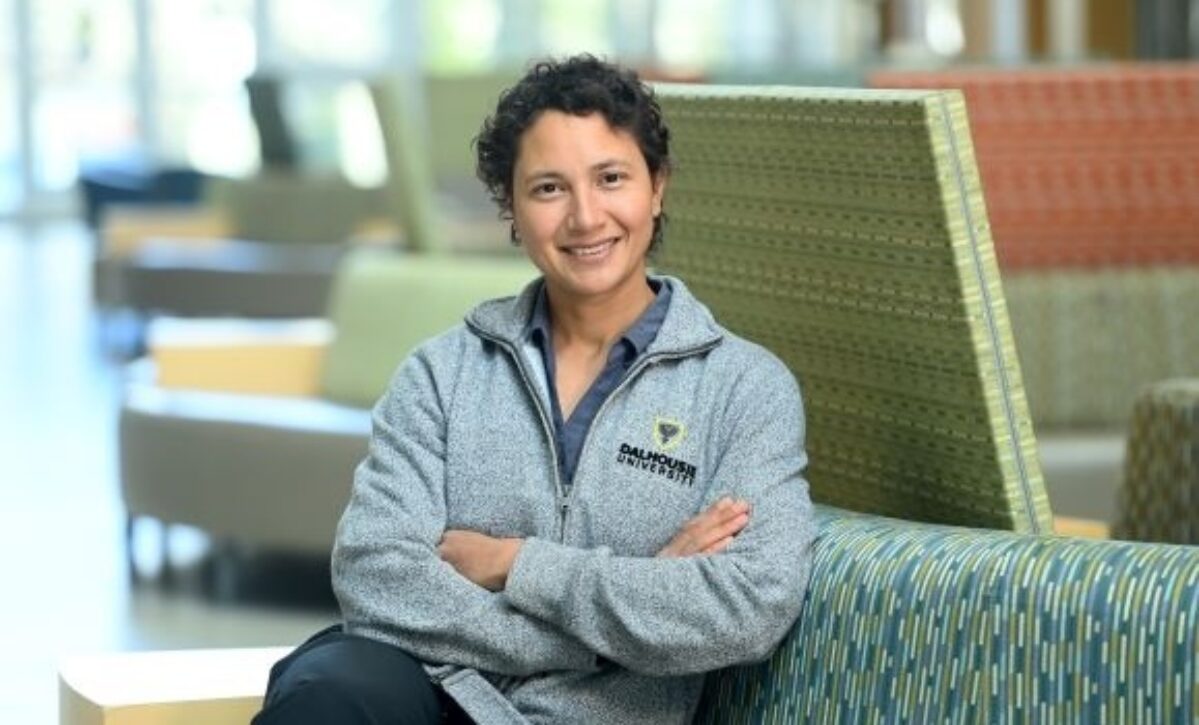Vaccines and mothers’ milk: investigating a life-saving combination for newborns
March 14, 2024
By Laura Eggertson
Ten years later, Nelly Amenyogbe can still see the unbroken spit bubble on the baby’s lips.
In 2015, the Dalhousie University researcher was working with the Bandim Health Project in Guinea-Bissau, an impoverished West African country, where she was investigating the potential of vaccines to improve babies’ resistance to infection.
Newborn babies are often unmonitored overnight in their cribs in the hospital in Bissau, the country’s capital city, compared to the kind of care Canadian hospitals have the resources to deliver. The hospital also lacks the high-tech monitoring equipment standard in Canadian institutions.
The day Amenyogbe and her student visited, they spotted the spit bubble on the newborn’s mouth and knew it should not be there.
“How could a bubble stay there if you were breathing? That’s when we realized that baby probably wasn’t breathing anymore,” Amenyogbe says.
The Canadian visitors asked the unit’s nurses to take a look. The nurses wrapped the infant in a bundle and handed it back to its mother. The baby had died, alone, in the night.
Amenyogbe wants to change the outcomes for babies like the one she saw that day – a child whose name and sex she never learned.
Amenyogbe’s research involves the intersection between an affordable, easy-to-administer vaccine called BCG (Bacillus Calmette-Guérin), breast-feeding, and babies’ abilities to fight off the infections that are the leading cause of infant deaths.
Every year, more than 200,000 newborns worldwide die from infections that trigger a chain-reaction through their bloodstream. This process, called sepsis, damages tissue and can cause organs to fail.
In recognition of her work, the Canadian Institutes of Health Research recently gave Amenyogbe a Research Excellence, Diversity and Independence (REDI) Early Career Transition Award. The REDI awards support clinicians, researchers, and post-doctoral students like Nelly from underrepresented groups as they launch their research careers.
The award will allow Amenyogbe, who is of African heritage, to build on findings other researchers in Guinea-Bissau had already noticed: vaccinating babies with BCG within their first month slices their risk of death from sepsis in half.
Although the vaccine was designed for tuberculosis, its broader benefits are what interest Amenyogbe.
She has discovered the vaccine works immediately, in the first hours and days after being administered, by increasing a type of white blood cells called neutrophils that build immunity and fight off infection.
But not all babies who receive BCG can resist infections. After observing the nursery at the Guinea-Bissau hospital, whose heavy door is locked at night with just one mother holding the key, Amenyogbe realized many women might not be able to feed their babies frequently just after the infants are born.
That sparked her question: are the vaccine’s immunity effects boosted in babies because they received colostrum from their mother’s breastmilk right after they are born?
“Our hypothesis is, if you didn’t get colostrum, BCG is not going to help you,” Amenyogbe says.
Using pre-clinical models and data from human studies of the immune system, Amenyogbe is analyzing the differences in the health outcomes of babies who received the BCG vaccine and were breastfed immediately, versus those babies who got the vaccine but did not receive that vital colostrum right away.
If Amenyogbe’s research confirms that colostrum and BCG work together to save babies’ lives, her work could lead to low-cost, practical interventions involving vaccination and breast-feeding.
Those interventions show promise for saving not only Guinea-Bissau babies, but millions of others all over the world.
In the decade since she stood and cried in the crowded hospital corridor in Bissau, Amenyogbe has become a mother herself, to two children.
When she thinks about her deliveries, she often harkens back to that day in Bissau.
“I had two very healthy pregnancies, two healthy babies who experienced little to no hardship at all. I didn’t have to experience any of these difficulties and hardships, including loss,” she says.
Her research will not save every baby from life-threatening infection. But it will give other babies a better chance of having the promising start her children enjoyed.
“What we are looking for is a massive improvement above what we currently do,” she says.
“This where you can make a lot of impact, right now.”

